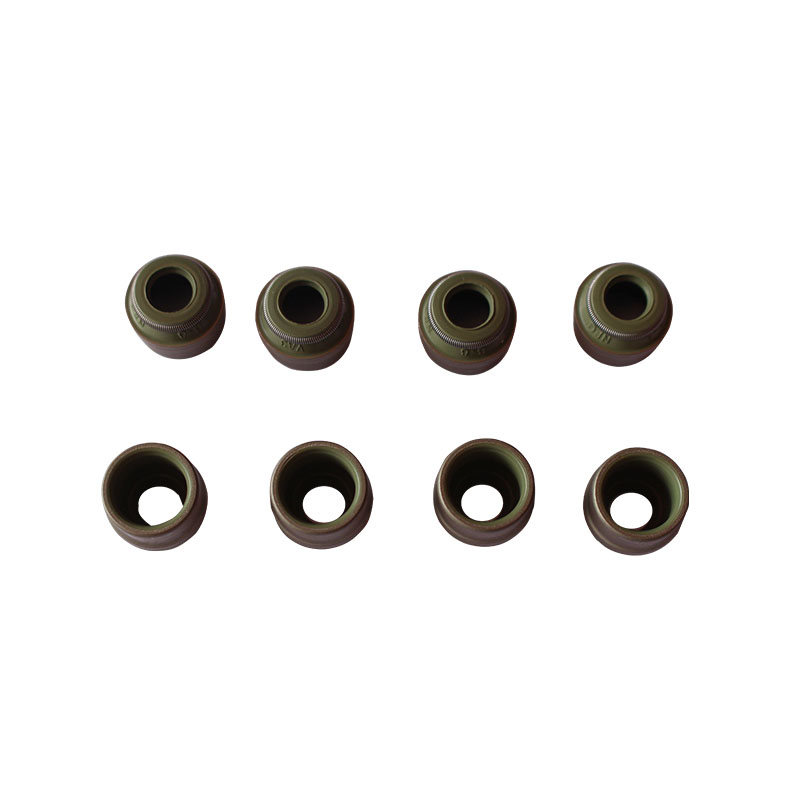flat sheet gasket
Understanding Flat Sheet Gaskets Applications and Benefits
Flat sheet gaskets play a crucial role in ensuring the integrity and efficiency of various industrial applications. These gaskets, typically made from materials such as rubber, compressed fiber, or metal, are used to create a seal between two surfaces, preventing leakage of fluids or gases and maintaining pressure. This article delves into the characteristics, applications, and benefits of flat sheet gaskets, illustrating their importance in modern engineering and manufacturing.
What are Flat Sheet Gaskets?
Flat sheet gaskets are thin, flat pieces of material designed to fit between two stationary components. They are often cut to specific shapes and sizes based on the requirements of the application. The primary function of these gaskets is to fill the space between two mating surfaces to create a tight seal, which is crucial in preventing leaks. Depending on the operational environment, they can be manufactured from a wide variety of materials, including cork, rubber, silicone, PTFE (Teflon), and various metal composites.
Key Applications
1. Pipelines and Pumps Flat sheet gaskets are widely used in the pipeline industry and are essential for pumps and valves. They help seal the joints in piping systems, preventing leaks that can lead to significant operational inefficiencies and safety hazards.
2. Automotive Industry In automotive applications, gaskets are critical for sealing engine components, ensuring that fluids like oil and coolant do not leak. Flat sheet gaskets are often employed in oil pans, cylinder heads, and exhaust systems.
3. HVAC Systems In heating, ventilation, and air conditioning (HVAC) systems, these gaskets help maintain proper airflow and system efficiency by sealing connections between ducts and equipment.
4. Chemical Processes In chemical processing industries, flat sheet gaskets resist corrosive chemicals and high temperatures, essential for maintaining safety and operational integrity in chemical reactions.
flat sheet gasket

5. Food and Beverage Industry Gaskets that comply with food safety standards are crucial in the food and beverage industry. They prevent contamination by creating airtight seals in processing and packaging equipment.
Benefits of Flat Sheet Gaskets
- Versatility One of the most significant advantages of flat sheet gaskets is their versatility in handling various applications across multiple industries. Their ability to be customized in terms of material, size, and shape makes them suitable for numerous sealing tasks.
- Cost-Effectiveness Compared to other sealing methods, flat sheet gaskets are often more economical, particularly for mass production. Their simplicity in design reduces manufacturing costs and allows for quick replacement in maintenance schedules.
- Easy Installation Installation of flat sheet gaskets is generally straightforward, requiring minimal effort and tools. This ease of installation not only speeds up maintenance but also reduces downtime in industrial settings.
- Reliable Performance When properly selected for the specific application, flat sheet gaskets can provide reliable sealing over extended periods. Their material properties can be tailored to withstand extreme temperatures, pressures, and corrosive environments, ensuring effective performance.
- Environmentally Friendly Options Many manufacturers now produce flat sheet gaskets using environmentally friendly materials. This transition not only meets industry regulations but also helps companies maintain sustainable practices.
Conclusion
In summary, flat sheet gaskets are indispensable components in various industrial applications, providing solutions for sealing problems across a wide range of environments. Their versatility, cost-effectiveness, and reliability make them a preferred choice for engineers and maintenance professionals alike. By choosing the right material and design, industries can ensure the longevity and efficiency of their equipment while minimizing the risk of leaks and contamination. Understanding the significance of flat sheet gaskets is crucial for anyone involved in engineering and manufacturing sectors, as these components contribute significantly to operational success.
-
Engine Crankshaft Oil Seal 9031138096: Reliable Leak Protection
News Aug.30,2025
-
Cassette Seal: Integrated Solutions for Heavy Duty
News Aug.29,2025
-
Premium Automotive Oil Seals Suppliers | Durable & Precision
News Aug.28,2025
-
Oil Drain Plug Washer Reusable Types
News Aug.22,2025
-
Oil Drain Plug Replacement Guide
News Aug.22,2025
-
Heavy Duty Seal Waterproof Features
News Aug.22,2025
-
Engine Oil Seals Installation Guide
News Aug.22,2025
Products categories















